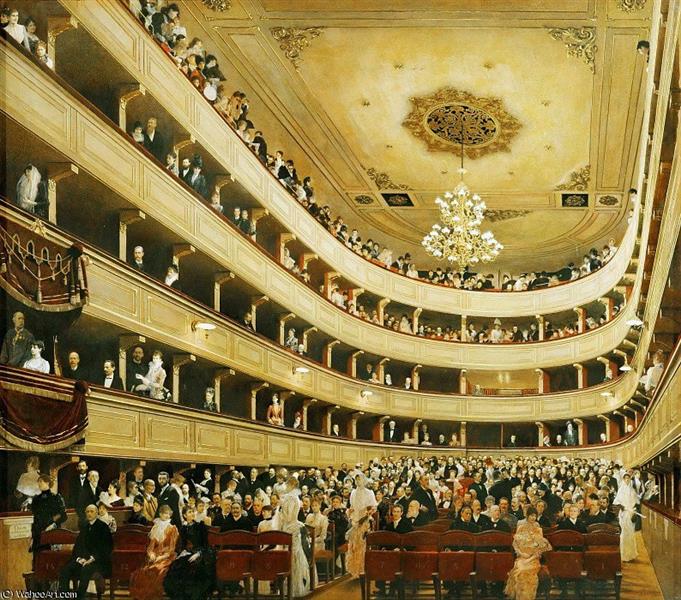
__________
A thin circumference of land appears;
And Earth, but not at once, her visage rears,
And peeps upon the seas from upper grounds;
as the land begins to peep[ ] through
the water, a circumference of land
appears, a circle of Earth within the
earlier universal water
to rear, to raise upright, boldly, the better,
here, for Earth‘s visage, Earth‘s face, to
peep[ ] upon the seas from newly gained
upper grounds
The streams, but just contain’d within their bounds,
By slow degrees into their channels crawl;
streams, just recently redefining their
boundaries, or bounds, [b]y slow
degrees settle, become waterways,
channels, rivers, rivulets, rills
I love crawl here, incidentally, the slow,
insidious, infiltration of a territory, silent
and immutable, as [t]he streams, at the
dispassionate pace of nature, find their
individual course
And Earth increases, as the waters fall.
the waters fall, the waters recede
In longer time the tops of trees appear,
[i]n longer time, after a while
Which mud on their dishonour’d branches bear.
for which the only solution here, would
be, I thought, however ironically, a
shower, rain
but I digress
At length the world was all restor’d to view;
But desolate, and of a sickly hue:
Nature beheld her self, and stood aghast,
A dismal desart, and a silent waste.
desart, is desert, even my spellcheck
insisted
our two survivors, look around
Which when Deucalion, with a piteous look
Beheld, he wept, and thus to Pyrrha spoke:
let me point out that what follows,
which is to say when Deucalion
… thus to Pyrrha spoke, we have
an extended monologue, rather
than a narration, the poet, Ovid,
has given a voice to Deucalion,
his character, his creation
monologues, especially since the
rhythm
it should be noted that this translation
century and a very year after
Shakespeare‘s demise, in 1616, time
for poets to have imbibed his already
profound influence
nor could they not have been marked
by the spirit of their own time, and the
many transformative epochs since
the year 1, that would’ve affected the
translation
the original Latin text, for instance,
Oh wife, oh sister, oh of all thy kind
The best, and only creature left behind,
By kindred, love, and now by dangers joyn’d;
Of multitudes, who breath’d the common air,
We two remain; a species in a pair:
The rest the seas have swallow’d; nor have we
Ev’n of this wretched life a certainty.
The clouds are still above; and, while I speak,
A second deluge o’er our heads may break.
Shou’d I be snatcht from hence, and thou remain,
Without relief, or partner of thy pain,
How cou’dst thou such a wretched life sustain?
Shou’d I be left, and thou be lost, the sea
That bury’d her I lov’d, shou’d bury me.
Oh cou’d our father his old arts inspire,
And make me heir of his informing fire,
That so I might abolisht Man retrieve,
And perisht people in new souls might live.
But Heav’n is pleas’d, nor ought we to complain,
That we, th’ examples of mankind, remain.
breathe into me his inspiration, his old
arts, his informing fire, so that I could
reconstitute Man, retrieve him, and
supply the perisht people with new, and
presumably more honourable, souls
He said; the careful couple joyn their tears:
He said, or this he spoke, and the
couple joyn their tears
And then invoke the Gods, with pious prayers.
Thus, in devotion having eas’d their grief,
From sacred oracles they seek relief;
And to Cephysus’ brook their way pursue:
runs through Central Greece
The stream was troubled, but the ford they knew;
the ford, the way across the stream
With living waters, in the fountain bred,
living waters would gush from a
spring, around which a fountain
would’ve been built
They sprinkle first their garments, and their head,
Then took the way, which to the temple led.
The roofs were all defil’d with moss, and mire,
The desart altars void of solemn fire.
Before the gradual, prostrate they ador’d;
The pavement kiss’d; and thus the saint implor’d.
the gradual is a hymn sung within
the context of a full religious service
desart here is again desert, but in
this instance signifying deserted
the saint, an anachronism here,
for saints were not at all even a
concept at the time of Ovid,
would’ve been Themis, goddess,
of Divine Justice
R ! chard



.jpg!Large.jpg)